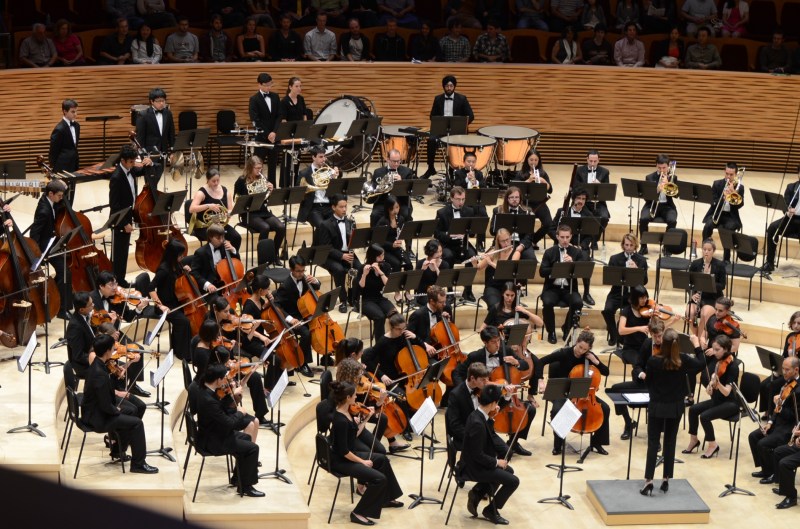I remember my first rehearsal with a semi-professional orchestra. I arrived early at the church we were meeting at and set up my chair. The hall slowly filled as I set up my music stand and bent down to open my case. By the time the conductor arrived, everyone else had taken their seats. Being new and very nervous, I didn’t know what to make of this group of musicians. Only one thing stood out to me — they were all white, every last one of them, except for me.
This is an all-too-familiar picture for classical musicians of color worldwide. Chamber groups and orchestras, both amateur and professional, tend to be dominated by white musicians, according to the League of American Orchestras. It is often difficult to find a truly representative classical music group, one that includes members of the Black and Latinx communities, and this is something that the Sphinx Organization is aiming to change.
“The mission is to transform lives through the power of diversity in the arts, and we do so through programs that span ages and demographic categories,” Sphinx president and artistic director Afa S. Dworkin said.
The organization offers programs that reach around ten thousand participants and serve them throughout their classical music careers, from early education to professional training and leadership development. In each of these fields, the programs provide opportunities that many of the students would not have been exposed to otherwise.
For many people of color, it may be difficult to enter the world of classical music due to a lack of exposure. The organization partners with schools in Detroit and Flint, Michigan, to provide classical music education to young people from diverse backgrounds. They provide the students with lessons and materials, including instruments and sheet music, free of charge.
As students grow older and look for professional opportunities, they may begin to feel discouraged by the lack of diversity — the lack of people like them in major orchestras and chamber groups. The Sphinx organization offers programs including orchestral groups and the Sphinx Performance Academy, which provide a unique opportunity for pre-college and college-age students to play in a setting that is both professional and culturally diverse.
“Getting involved with Sphinx was an incredibly eye-opening experience for me,” said high school student, Sphinx Performance Academy alum and MPower Grant Recipient Avinashi Bhandari. “I spent two weeks surrounded by musicians of color, and it was so different to feel like I totally fit in with everybody.”
Beyond the programs it offers, the organization awards grants to musicians previously involved in Sphinx programs or competitions to support classical projects they will undertake throughout their careers. Based on the scope and need of each project, the organization will award grant recipients between $1000 and $10,000, which can be used to fund anything from music lessons to research in music history to social projects centered around classical music awareness.
When the organization was founded, just 2.6% of American orchestra members were Black or Latinx. Now, approximately 20 years later, this statistic has risen to 4.3%, a significant improvement, but still not quite representative of the demographics of the nation. The organization plans to further increase the reach of their programs in terms of both participants and audiences to make people of color in classical music the new normal.
Contact Prithi Srinivasan at 22psrinivasan ‘at’ pinewood.edu.
